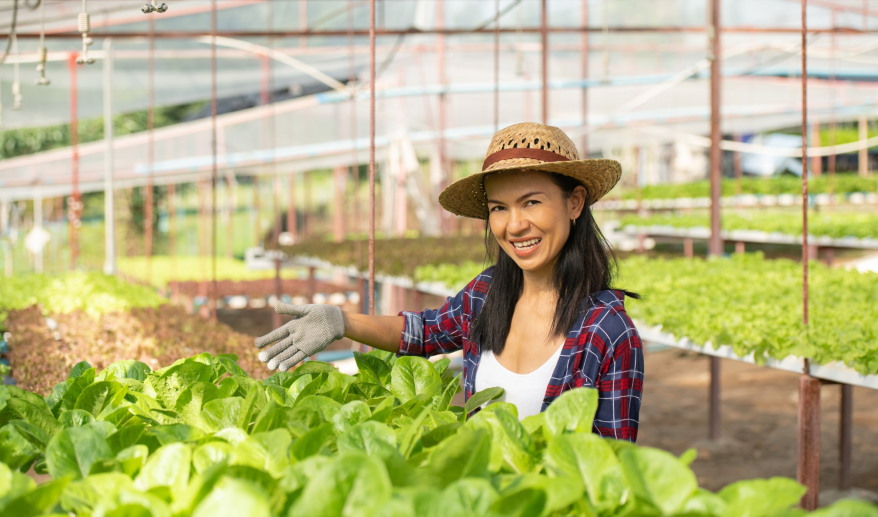How Hydroponics is Improving Food Safety
- Written by NewsServices.com

In today’s world, which is battling with several kinds of severe diseases, the issue of food safety has never been so important. While, on the one hand, a large part of the world continues to consume undrinkable water and adulterated food items, those consuming the so-called safe food have also been questioning the authenticity of the food safety standards. Even though governments across the globe have been spending millions of dollars and putting in significant efforts to implement world-class food safety procedures in place, there have been instances where adulterated food has caused massive health issues. In the wake of such a global crisis, hydroponic farming has taken everyone’s attention for its ability to produce organic, pesticide-free harvest grown in a controlled environment. Hydroponic food production has been gaining momentum not only because it provides much healthier and bountiful produce but also because it ranks high in the food safety aspect.
What is food safety, and is hydroponic food safe?
Food safety is an umbrella process that takes care of keeping food safe. From growing to transporting, distributing, packaging, and even selling food items, the entire food supply chain needs to follow the food safety standards regulated by the governments the world over. Some of the fundamentals of food safety include preventing food from getting contaminated, resulting in food poisoning. Following steps are undertaken to ensure this:
· Knowing and understanding food poisoning, allergies, and intolerance
· Maintaining the highest standards of hygiene
· Keeping basics like storing, packaging, and transporting food in a regulated environment
· Utilizing adequate and effective pest control methods
· Cleaning and sanitizing all contact points
Here’s how hydroponic farming is proving to be a boon for food safety
Commercial farming has, in recent times, drawn a lot of flak for its unconstitutional practices. The overuse of pesticides and chemicals to increase the produce has resulted in several health issues that even the first world countries have been struggling to tackle. This is why the hydroponic food safety promise has made the agricultural world pause and take notice of this amazing technique of growing organic food. Hydroponics setup is a way of growing vegetables and other plants without soil. Instead, a growing nutrient solution and water are used as a medium to grow plants. Due to the absence of soil, hydroponic food is free of chemicals and pesticides and is even devoid of other complications like pests, pathogens, weeds, and unhealthy plant growth.
Hydroponic food is free of pathogens and other impurities
Since plants are grown without soil in a controlled environment, food grown hydroponically is free of pathogens. The soil in the traditional farming techniques itself is the reason for the growth of pathogens and other bacteria that can weaken the crops and make them less healthy. Hydroponic food, on the other hand, is free of such impurities and thus healthier.
Reduces the risk of contamination from outside sources
Hydroponic food production as a farming technique can reduce the risk of food-related health issues. Hydroponic systems are built in such a way that they are closed to the outside world, and thus they better protect the crops from contamination sources such as animal droppings etc. Foodborne illnesses have troubled the world for centuries, and this issue is only getting more severe in today’s world. But with hydroponic gardening providing a viable solution to this global issue, it is time to rethink the overall strategy.
Hydroponic greenhouses are safer
Unlike outdoor soil-based farming, hydroponic veggie gardens or greenhouse gardens are a lot safer. This is mainly because the entire farm can be controlled and made safe by following some basic practices. These include keeping all equipment clean and sanitized, having a handwashing station, keeping records and logs of any mishap, keeping the hydroponics setup clean and tidy, having well-trained and informed employees.
Grows healthy, pest-free, organic food
Hydroponic farming produces food that is a lot healthier than the traditional form of farming. And the reason is simple. Hydroponic systems can control most variables like light, oxygen, humidity, pH value, nutrient solution, etc. In addition to that, unlike soil-based gardening, there are no pests, pathogens, or other kinds of weeds growing in this system. Since the nutrients are supplied directly to the roots, the plants grow a lot healthier. And healthier plants are less likely to cause any food-related illnesses.
Food safety and the challenges of making our edibles safer have been some of the biggest issues the world has been facing. From several global health organizations to local bodies, every entity has been battling this challenge in its own way. But with the advent and advancement of hydroponic farming, this issue might get its answer very soon. The question we all need to ask here is – Is hydroponic food safe? And all hydroponic farmers and industry experts would nod in the positive. The need here is to get the right system in place so that this wonderful technique of growing organic food can be maximized. With the right implementation, proper distribution of hydroponic supplies, and correct knowledge, the issue of food safety can be tackled in a much better way.





